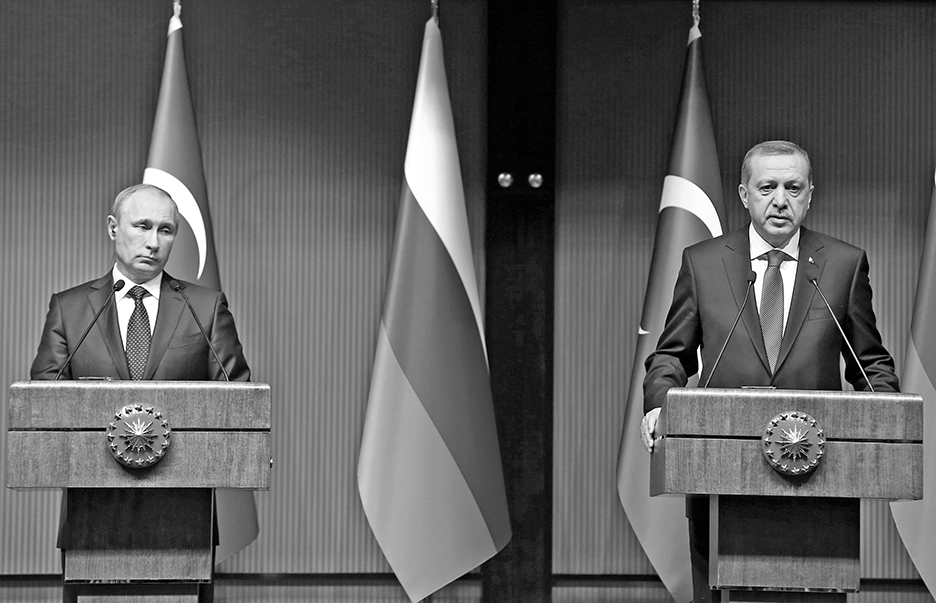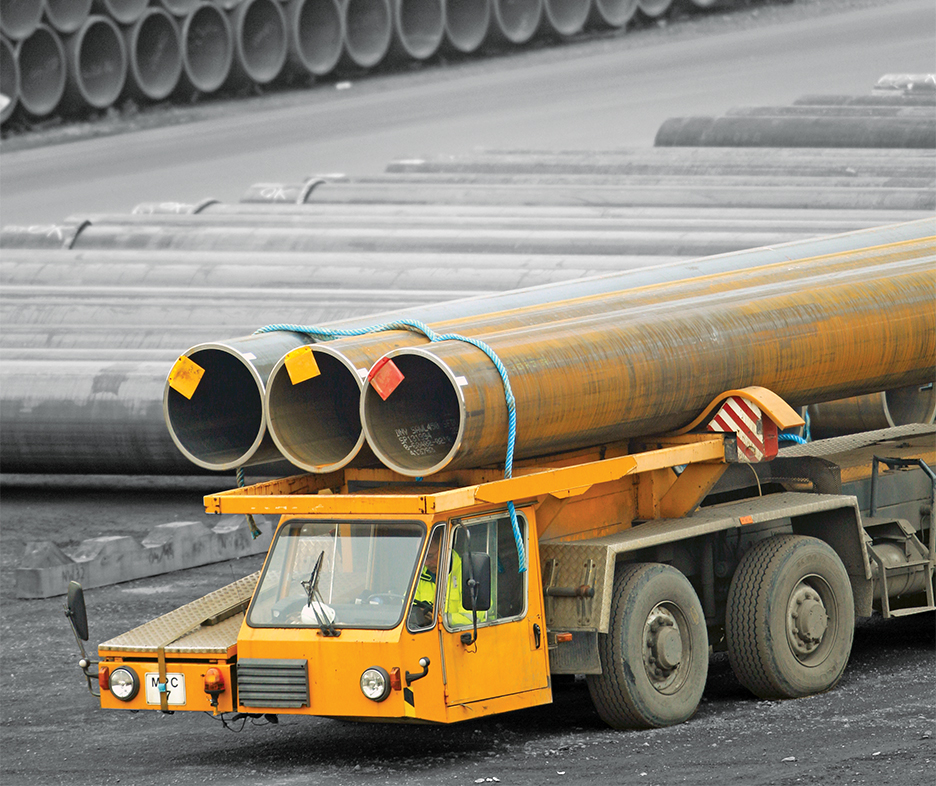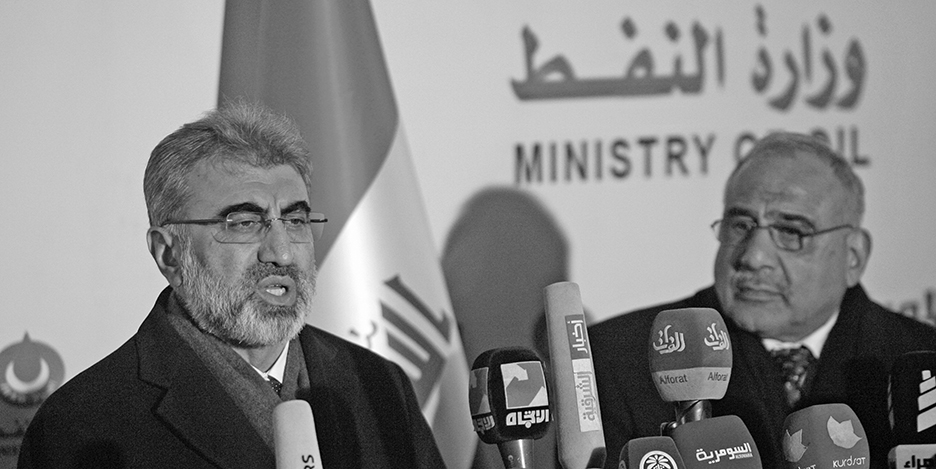The country’s attempts to wean itself from Russian gas affect Euro-Atlantic security
By Professor Dr. Oktay F. Tanrısever, Middle East Technical University, Turkey
Turkey’s energy strategy, which has been shaped jointly by the Ministry of Energy and Natural Resources and the Ministry of Foreign Affairs, seeks to find secure, reliable and cost-effective supplies for its energy-hungry industry. The Energy Market Regulatory Board, on the other hand, sets the rules for the energy sector as a whole. Its rules ensure fair competition for all investors, public and private, as well as domestic and international. This body contributes to the Europeanization of market norms and principles in this sector.
Having an energy strategy is important for Turkey, a significant NATO ally strategically located in the southeastern part of the Euro-Atlantic region. Achieving harmony between the domestic and external dimensions of Turkey’s energy strategy is essential for enhancing Turkey’s overall energy security. The strategy’s central elements include the security of supplies and the diversity of sources in addition to energy efficiency and greater use of renewable resources.
Turkey’s location helps it play a constructive role in the energy security of the Euro-Atlantic region. To the east are the energy-rich Caspian Sea and the Persian Gulf regions; to the west are the economically developed European markets of the eastern Mediterranean, with its high demand for energy. Turkey seeks to construct as many oil and natural gas pipelines as possible to provide a safer and cheaper way to carry energy from east to west.

Although Turkey defines its energy strategy in close cooperation with the United States and the European Union, the nation’s main weakness stems from Ankara’s increasing dependence on Russian energy. Poland, the Baltic states, Greece, Austria and Germany also have high levels of dependence on Russian oil and gas. This reliance puts these countries at risk, especially considering the ongoing Ukrainian crisis, rooted in Russia’s strategy to undermine Ukraine’s drive for Europeanization.
As Russia becomes increasingly interventionist, Turkey’s energy strategy becomes even more important to the Euro-Atlantic nations’ need for energy security. It is essential for Ankara to coordinate energy security policies with the Euro-Atlantic world. A greater coordination among Turkey, the U.S. and the EU is important to prevent Russia from exploiting Turkey’s energy vulnerabilities.
Moscow’s use of European energy vulnerabilities has become a key characteristic of Russian foreign policy. Immediately after the Ukraine-Russia natural gas crisis of early 2006, the EU started to take energy security very seriously. Brussels began to emphasize the need to develop a coordinated and common EU position on energy trade with Russia. The EU Commission has already published a green paper and strategic paper on energy security to foster coordination. NATO and the EU, as the two major multinational institutions of the Euro-Atlantic world, have also enhanced coordination.
Turkey’s role in Euro-Atlantic energy security seems to be as a bridge between Europe and the rich energy resources to its east and south. Not surprisingly, Russia and Iran oppose Turkey’s energy strategy and the Euro-Atlantic energy security perspective. The potential for competition between Turkey and Russia, as well as Iran, is evident since Turkey’s unique position challenges Russian and Iranian hegemony over the energy transportation routes of the other Caspian states: Azerbaijan, Kazakhstan and Turkmenistan.
In aligning its energy strategy with European energy security policy, Turkey is contributing to the policy of diversification of resources. Turkey’s geographical position enables it to foster interdependencies in the region, politically and economically, and to serve as a conduit to Europe, Eurasia and the Middle East. Nevertheless, to realize this energy strategy, Ankara needs to develop sustainable energy relations with the countries of the Caspian Sea region so that they can bypass Russia and Iran.
Neighborhood energy diplomacy
For its ambitious energy strategy to work, Turkey also needs to engage in sophisticated diplomacy with neighboring regions, in addition to the Caspian Sea nations: the Middle East and the eastern Mediterranean. The Caspian Sea region represents the backbone of Turkey’s energy diplomacy toward its neighbors, which combines the energy interests of the Caspian Sea countries with those of the Euro-Atlantic countries in such a way that Turkey becomes a regional energy hub.
The Baku-Tbilisi-Ceyhan (BTC) oil pipeline and Baku-Tbilisi-Erzurum (BTE) natural gas pipeline are core elements of Turkey’s energy diplomacy. Ankara aligns its energy policies with those of Azerbaijan and Georgia, which are both oriented toward the Euro-Atlantic world. Azerbaijan and Georgia have serious conflicts with Russia over ethno-territorial conflicts in Abkhazia, South Ossetia and Nagorno-Karabakh. These conflicts established the geopolitical rationale for them to resist Russian hegemony in the Caucasus in the post-Soviet era.
In close cooperation with Azerbaijan, Georgia and the U.S., Turkey succeeded in bringing Azerbaijan’s crude oil and natural gas to Turkey through the BTC and BTE pipelines. The successful realization of these projects has reduced Russia’s influence over Azerbaijan’s energy resources and Turkey’s dependence on Russia by enabling Baku to bypass Russia for access to international energy markets and Turkey to diversify its energy.
Turkey and Azerbaijan have sought to supply the European natural gas market from Azerbaijan’s Shah Deniz 2 natural gas field. After a long period of deliberations, Turkey and Azerbaijan agreed to construct the Trans-Anatolian Pipeline (TANAP). Major energy companies such as BP and Statoil are also contributing to this project. TANAP is expected to be operational by 2018. The Trans-Adriatic Pipeline (TAP), linking Turkey to Greece, Albania and Italy, will distribute this gas from Azerbaijan to the internal European energy market.

The successful realization of the BTC and BTE pipelines in the last decade has shifted the priority of extending these pipeline networks to the east and south in the current decade. In the east Caspian Sea region, Kazakhstan and Turkmenistan do not enjoy Azerbaijan’s geographical advantages to export energy to Europe via Turkey. In fact, Kazakhstan and Turkmenistan, geopolitically denied access to European energy markets, remain largely dependent on Russia to export their energy. Their only other option is to export energy to Asian markets, orienting them toward China and India.
Moscow assumes it can keep the post-Soviet Caspian states within its sphere of influence if they are dependent on Russia to export oil and gas. Its effectiveness in playing Azerbaijan and Kazakhstan against Turkmenistan and Iran over the status of the Caspian Sea made Russia a key player in the development of regional hydrocarbon resources. Moscow also controlled the export pipelines for Kazakhstan, Turkmenistan and Azerbaijan. By manipulating conflict over the status of the Caspian Sea, Moscow prevents the realization of the Trans-Caspian pipeline, which would transport Kazakhstan’s and Turkmenistan’s energy to Europe.
In the Caspian region, Iran’s policies seem to be aligned with Russia’s. Tehran helps Moscow block realization of an East-West energy corridor between the energy producing countries in the region and consumers in Europe, via Turkey. In theory, the interim agreement on Irans nuclear program with the Group of 5+1 countries has the potential to change Iran’s long-term anti-Western policy. This could weaken Russia’s position.
Since Turkey has largely failed to transport an adequate amount of natural gas from the Caspian Sea to Europe via pipeline, it needs to find additional natural gas sources from the Middle East and the eastern Mediterranean. In the Middle East, only Iraqi energy resources are close enough geographically to contribute to Turkey’s strategy of completing an East-West energy corridor. Agreements in 2014 between Turkey and the Kurdistan Regional Government (KRG) created significant opportunity not only for regional energy cooperation, but also for linking the natural gas resources of Iraq with the European Southern Energy Corridor. In addition to the existing Kirkuk-Yumurtalik oil pipeline, a new, already-operational oil pipeline and a planned natural gas pipeline between the KRG and Turkey will enhance the prospects for Turkey’s East-West energy corridor.
The eastern Mediterranean, with its considerable proven natural gas reserves, has become another important region for Turkey to realize its East-West energy corridor. Although the development of these resources already has increased regional rivalries, exporting natural gas from Israel and Cyprus to Europe via Turkey seems to be the most cost-effective option and a basis for regional energy cooperation. To facilitate this, Ankara should prioritize the normalization of relations with Israel, as well as the peaceful settlement of the Cyprus conflict.
Russia’s dependency strategy
A major challenge to Turkey’s energy strategy stems from the increasing dependence of Turkey and other Eastern European countries on Russian energy supplies, as well as Russia’s tendency to manipulate this dependency to extend regional influence. Russia’s use of energy as a foreign policy tool creates significant risks to Euro-Atlantic energy security.
Turkey’s energy trade with Russia dates to the late 1980s, when Ankara agreed to import natural gas from the then-Soviet Union through a natural gas pipeline known as the “western route” passing through Ukraine, Moldova, Romania and Bulgaria. Turkey’s energy cooperation with Russia intensified after the realization of the Blue Stream natural gas pipeline project, signed in 1997. The Blue Stream pipeline provides Turkey with Russian natural gas through a direct pipeline under the Black Sea. However, Blue Stream has increased Turkey’s dependence on Russian gas considerably. Gazprom, Russia’s state-controlled natural gas company and one of the biggest energy companies in the world, seems to be interested in acquiring a significant share of the natural gas distribution networks inside Turkey as well.

In addition to natural gas, Russia is also a key crude oil supplier to Turkey. Turkey’s dependence on Russia’s oil increased as Turkey decided to shift its imports from Iran to adhere to internationally agreed sanctions against Iran’s noncompliance with the nuclear nonproliferation regime. Russian oil companies have also shown great interest in Turkey’s dynamic fuel oil sector. One of Russia’s leading oil companies, Lukoil, entered Turkey’s energy market by buying the Akpet retail fuel company.
Turkey’s energy dependence on Russia grew with the decision to build a nuclear plant for generating electricity in Mersin Akkuyu. Turkish Energy Minister Taner Yıldız and Russian Deputy Prime Minister Igor Sechin signed an agreement in May 2010 to build the power plant. The project has been criticized as environmentally risky, especially after the Japanese Fukushima disaster in 2011. Environmentalists note that Turkey is in an earthquake zone and that the country lacks expertise in verifying nuclear power safety measures. Russia’s reputation for nuclear safety has suffered since the Chernobyl nuclear accident.
Breaking dependence
The energy strategies of Turkey and Russia are very competitive and clearly rival each other. Turkey’s strategy of creating an East-West energy corridor, labeled the Southern Energy Corridor by the EU, is a vital alternative to Europe’s dependence on the Russian-controlled Eastern Energy Corridor. The strategic importance of the Southern Energy Corridor is that it could enable the EU to diversify energy supplies and minimize dependence.
EU-Russia differences over the supply of natural gas to Southeastern Europe put Turkey’s energy strategy to a test in recent years. The planned Nabucco project, to be constructed between Turkey and the Austrian natural gas hub in Baumgarten, passing through Bulgaria, Romania and Hungary, was designed to rival the Russian natural gas project South Stream, which follows the same route except that Romania is replaced by Serbia.
Although the Nabucco project’s main problem was its failure to secure an adequate natural gas supply — Azerbaijan’s Shah Deniz 2 field could meet only half of Nabucco’s capacity — its strength was in the endorsement of the European Commission. In contrast, while the South Stream project is not endorsed by the European Commission, its strength lies in abundance of Russian natural gas.
In a surprising move, Turkey’s construction approval for South Stream, under the Turkish Exclusive Economic Zone in the Black Sea in December 2011, strengthened Russia’s position in the politics of pipelines in the Black Sea region. Although Russia is clearly the main beneficiary of this deal, Turkey would have some gains and losses. Turkey is believed to benefit mainly by receiving a considerable reduction in the price of Russian natural gas from the Western route.
After the Ukraine crisis, Russia admitted that the South Stream pipeline could not be realized because of Gazprom’s noncompliance with the EU’s Third Energy Package guidelines as well as economic sanctions imposed over its annexation of the Crimea and its role in destabilizing Eastern Ukraine. To make Turkey more vulnerable to Russia, Russian President Vladimir Putin announced in December 2014 that the South Stream project would be redefined as “Turkish Stream.” This was a clear blow to Ankara’s declared strategy of becoming a European energy hub as an alternative to Russia. It weakens Turkey’s commitment to the EU Southern Energy Corridor as well as to the TANAP project. In addition, the deal is likely to reduce Russia’s dependence on Ukraine, which will be bypassed by the proposed “Turkish Stream” natural gas pipeline. This project could make Turkey more vulnerable to Russian pressures. Therefore, this is not good news for Turkey’s energy security or for Turkey’s regional and nonregional Euro-Atlantic partners.
Conclusion
As an emerging energy hub with growing industrial production, Turkey views energy security as critically important for overall Euro-Atlantic energy security. Nevertheless, Turkey’s energy diplomacy has been limited by a lack of adequate capabilities to play this vital role. Its overdependence on Russia undermines not only Turkey’s energy security, but also the Euro-Atlantic world as a whole since it makes Turkey, an important NATO ally, vulnerable to Moscow’s manipulations.
To enhance its energy security, Turkey should increase coordination of its energy strategy with NATO and the EU. Only through such coordination can Turkey realize its role as the regional hub of the Euro-Atlantic for energy resources from the Caspian Sea, Middle East and the eastern Mediterranean. Although Turkey has made significant progress in Europeanizing its energy sector, the opening of the energy chapter in the negotiations for full EU membership could also further contribute to the energy security of Turkey and its allies.


Comments are closed.